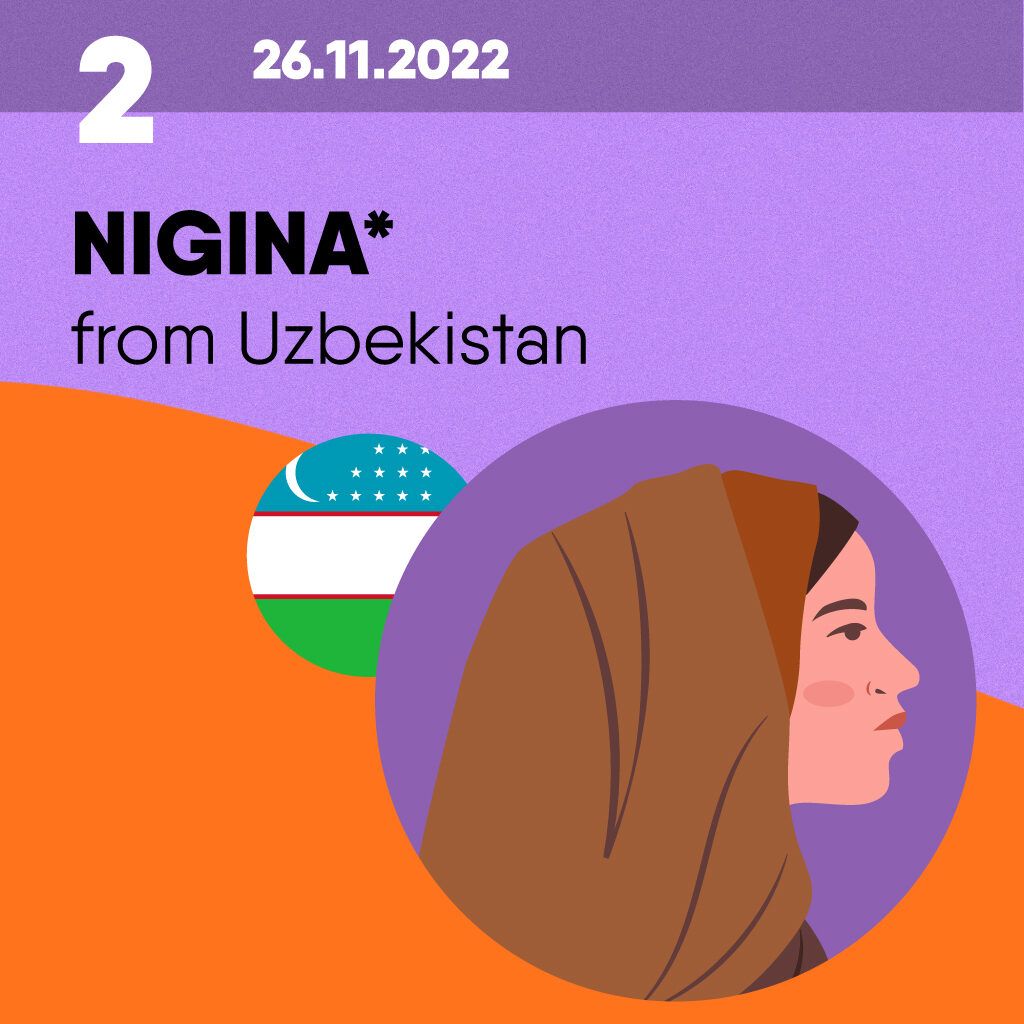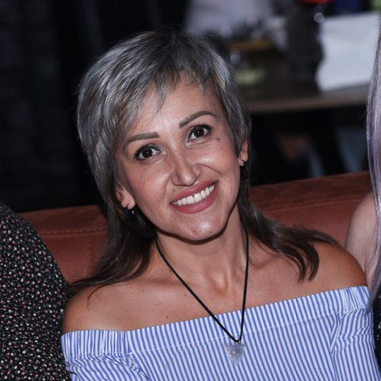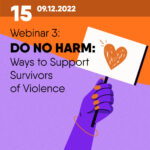Violence is not a sentence or why violation of women's rights cannot be covered up with the phrase "It's customary here"

Last year alone, law enforcement agencies of Uzbekistan received 39,343 complaints about cases of pressure and violence against women and girls. This number is 2.5 times higher than the statistics of 2020. Among them, 34330 (87%) committed in the family. Protection orders were issued to all the victims. Of these, 378 warrants were issued to minors, 9861 warrants to girls aged 18-30, 29104 to women over 30.
Husbands, partners, mothers-in-law, brothers… Those who are supposed to help and support act as provocateurs and rapists. But instead of censure and punishment, such situations in Uzbekistan are still considered as the norm for society. Where from generation to generation it was like «nothing» and «everybody survived», and the expression “If he beats you, it means he loves you” is literal. So, does violence really have to be a part of life, or can it and should be stopped?
“We record a very high number of requests from women,” says Oksana Rusnak, peer consultant, case manager and REActor, NGO “ISHONCH VA HAYOT”, Uzbekistan. “And most of the clients are HIV positive. It is their status, or rather its disclosure, that acts as a kind of trigger for a woman to raise a hand. However, this is only one of the troubles. After what happened, the victim is afraid to go to law enforcement agencies, because she has a number of fears: publicity – because it will be necessary to name the reason why she was beaten; distrust of the police and medical staff; self-stigma. Here it is customary to hear: “Don’t wash your dirty linen in public! You probably asked for it.” Victim-building of the highest level. And if a woman turned to us, she is already a big hero, as she was able to overcome all these barriers within herself. So, we can help her.”
Nigina (name changed – note REAct) lived in the Yangikhaetsky district of Tashkent. Having met a young man, they began to live in a civil marriage. At some point, the girl had to undergo a medical examination, during which HIV was detected. She was consulted at the medical center and prescribed therapy, but she did not dare to immediately tell her partner about her status and that she had embarked on treatment. After a while, a nurse came to their house. Not finding Nigina at home, she went in again, but alas, she was gone again. This was followed by several more visits and during one of them, she disclosed the status of the patient to the mahalla committee (in Uzbekistan, a form of community united in a small area – note REAct), and they informed the girl’s partner. After that, constant beatings began, and then the rapist began to disseminate information about her status to third parties.
Nigina found out about the work of the REActors and decided to seek help. Thanks to them and the involvement of a lawyer, applications were drawn up and submitted to law enforcement agencies and to the clinic, an employee of which disclosed the status of the girl. The rapist was punished, and the head physician removed the nurse from work.
This story has a happy ending, but how many women are left in Uzbekistan who are afraid to talk about themselves and stand up for their rights?

“I believe that the situation can be changed,” says Oksana Rusnak. “But for this, several points must be fulfilled. First of all, a woman needs an incentive not to be silent and not to be afraid to defend her position – they can be trusted in law enforcement agencies, their interest in resolving such cases. Secondly, scenes of violence can be stopped if a woman knows that she has a shelter where she is provided with protection and legal support. REAct in Uzbekistan has been implemented since December 2020 by our organization ” ISHONCH VA HAYOT” and 13 specially trained REActors are ready to provide comprehensive support. Let’s remember – violence is not a sentence!”



